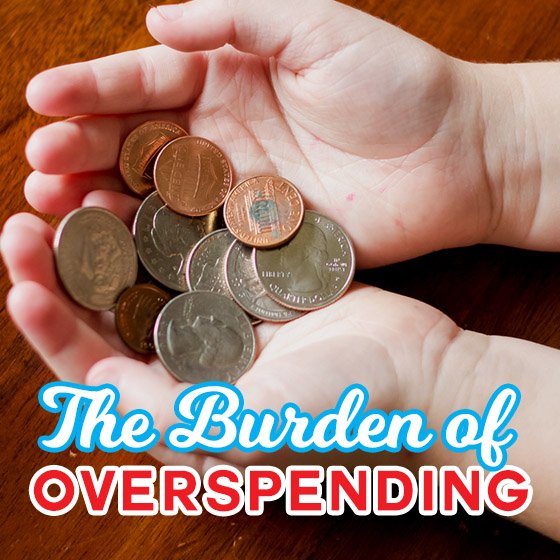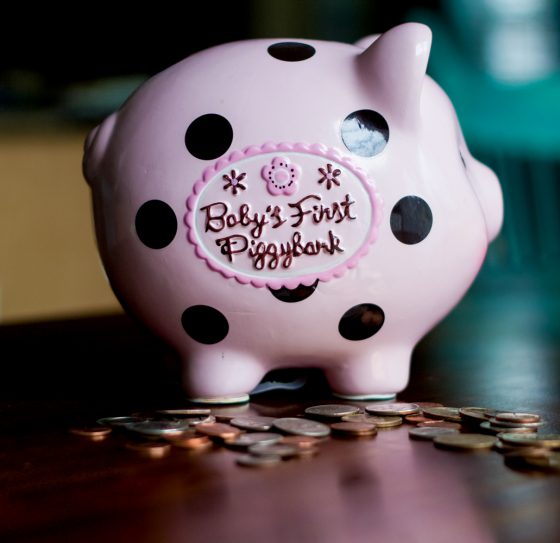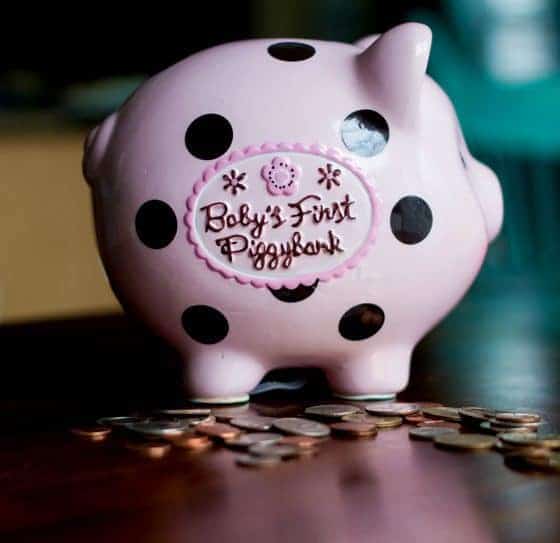Today, many families are burdened with confusing their best intentions to give kids all that they want with what they need. Nice cars, the newest gaming systems, the best clothes, the newest electronics – all to help keep their kid “with the times”. But do our kids really need all of this? Are these necessities, or are they taking over our lives, deepening our debt, and adding to our stress level? The saying goes, “we were born with nothing and we will die with nothing,” so, what is the point of overworking ourselves to provide every possible thing to our kids? What happened to kids working for what they wanted? Why do parents feel the need to stress over providing the biggest and best, when really the moderately priced off-brand works exactly the same? Why can’t parents say no? Is the burden of overspending with the cost it takes to carry?

Saying No

Partly, we do burden ourselves because we don’t want to tell our kids no. We may have the best of intentions – we want them to be happy, to feel loved, not to feel left out – the problem with this is two-fold. One – we are teaching our children that love, acceptance, and happiness are found in material things. And two – parents overwork to make sure they have all of these luxuries. Parents are constantly stressing over where the next dollar will come from all the while keeping a front that everything is okay in front of their kids. Discipline is the hardest part of parenting; it seriously sucks, but it’s totally necessary to avoid kids that constantly stick their hands out. Be firm in your no, but explain why, and explain alternatives to how they can “earn” or “work for” the item they want.
How we over spend

One problem that many families face is that they are living in the here and now and not preparing for the future. We want our kids to be smart, so we spend big bucks on pricey educational toys, but have no college fund to speak of. It’s backward; the end result as a parent isn’t to coddle your child, it’s to help them grow to the point that they can take care of themselves all on their own.
Before, we kept up with the Joneses next door, but now we are keeping up with the Joneses all over the world. We want what our “friend” on Instagram has, we love this fashion blogger’s maternity outfit, or we need this crib because so and so said it’s the best. We constantly see images of wealth; they are sensualized. It makes us feel good about ourselves if we have them. We feel that owning things bigger and better shows that somehow we are succeeding in life. No, no, no – prioritize what you really want to spend your money on – we cannot realistically buy everything we want. And even if we can – we realistically don’t need it. Who cares who has what – money can’t buy you love.
Why it hurts our kids

Our kids are always watching us, so if we aren’t teaching them how to prepare for the future, they won’t carry this ideal over into their own life. At a young age, we are teaching them that the future doesn’t matter. All that matters is instant gratification – instant happiness. If our kids learn this young, they will live it when they are older. We aren’t helping them stand on their own two feet. This is a vicious cycle – and we will end up with a 35-year-old asking us to bail them out of their bad money decisions.
Be honest and real with yourself – think about what you’ve been buying and the reasons behind it. Often we feel “guilty” like our child needs this or that. But in actuality, they are fine playing with pots and pans or coloring with crayons on paper. Sometimes we are making things unnecessarily over-complicated.
What we can do

Teach your kids from an early age about budgets. What they are, how to set one up, teach them about taxes, and investing, 401Ks, retirement, teach them – don’t leave it up to them to figure it out on their own. Let’s be honest, money is confusing, it’s hard, and it can be scary – so get them comfortable with money long before they need to fully understand all of this.
Tell them no – you provide them with the basic needs of life and sometimes a little more, but they don’t need every toy that comes out. Don’t feel guilty when you say no. Teach them the difference between wants and needs. Help them see the value and deliverance of hard work. We aren’t doing our kids any favors by buying them everything.
Don’t make money taboo. And don’t worship it. Money is necessary to live, but it isn’t what life is about. Sure, we need it to pay bills, eat, pay for the house, etc., but we don’t need to work our lives around it.
Simple is Better
Simple is better. Less is more. When a child has too many toys, especially electronic toys, they tend to use their imagination less. A child’s mind is made to manipulate and extrapolate the world around them. They are made to explore, find, be bored, and figure things out. If we give them too much, then we are inhibiting their ability to learn higher level thinking that comes through problem solving. Fewer items help to fuel their imagination; they create, they play with random rocks and make entire villages from them. This is deeper thinking.
Too much can also overstimulate and thus lessen their attention span. Less can help them learn the value of what they have, taking pride in their items and appreciating them more. Children become resourceful because they have to solve the “I’m bored, what do I do” problem. If you give a child everything they want, they come to expect this type of reward – they believe the world is meant for them to have any and everything. And worse, they not only expect everything, but they expect it served to them on a silver platter.
How to set up budgets

As they get older, have them set up their own budgets – if they run out of money they run out of money. Life lessons are hard to learn, but it will be even harder if Mommy and Daddy are always bailing them out. Teens need jobs. It teaches them responsibility, work ethic, and builds their resume for the future. Younger kids can do chores and help around the house to earn an allowance or work towards a goal.
Provide explanations about what you are doing and why. Kids are kids; we can’t expect them to fully grasp every adult concept, but we have to start somewhere. Discuss some of these important ideas when setting up a budget:
- Income – How will they earn money?
- Spending – What will they spend their money on? What are some items that are due every month (cell phone bill is an example)?
- Savings – Set aside some money for savings.
- Tweak – Give it a go and then tweak; managing money is a fluid process, it involves adaptability; understanding this young will help.
Sources: USA Today, Money.com, Becoming a Minimalist
Photo Credit: Ashley W









































